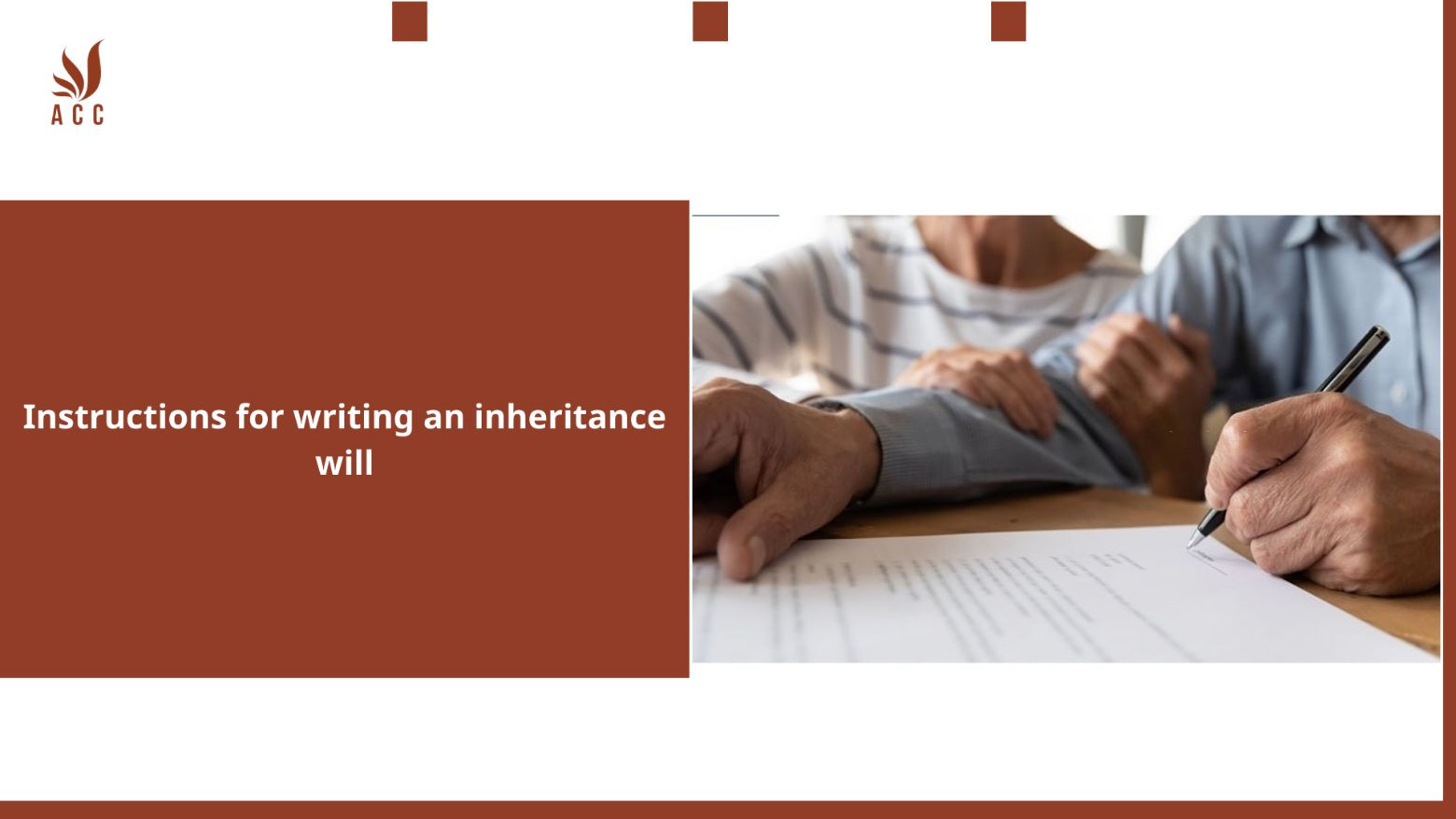Writing an inheritance will, also known as a last will and testament, is an important legal process that requires careful consideration and adherence to certain formalities to ensure your wishes are carried out after your death. Here are step-by-step instructions for writing an inheritance will:
1. Provide for Digital Assets:
If you have online accounts, digital assets, or intellectual property, specify how these should be managed or transferred.

2. Sign and Date the Will:
- Your will must be signed and dated by you in the presence of witnesses. The number and specific requirements for witnesses can vary by jurisdiction, so consult local laws or an attorney for guidance.
3. Witnesses and Notarization:
- In many jurisdictions, wills require witness signatures. Typically, witnesses should be disinterested parties (not beneficiaries) who can attest that you signed the will willingly and were of sound mind. Some jurisdictions also require notarization.
4. Keep the Will Safe:
- Store your will in a secure location, and let your executor and trusted family members know where to find it.
5. Review and Update:
- Periodically review and update your will to reflect changes in your life, such as new assets, beneficiaries, or significant life events like marriage, divorce, or the birth of children.
6. Seek Legal Advice (Optional):
- While it's possible to create a will on your own, consulting with an attorney who specializes in estate planning can help ensure your will complies with local laws and is less likely to be contested.
7. When using ACC Law Firm's testament, entrepreneurs will receive
When using ACC Law Firm's testament, entrepreneurs will receive professional legal advice and assistance in drafting a comprehensive and legally binding will that reflects their specific business needs and objectives. The testament will ensure the smooth transition of their business assets and help protect their interests and those of their beneficiaries. Additionally, entrepreneurs will have access to ongoing support and guidance from experienced attorneys who specialize in estate planning for entrepreneurs.
8. Q&a
Q1. What are the key steps in writing an inheritance will?
The key steps in writing an inheritance will include:
a) Determine your assets: Make a list of all your assets, including property, bank accounts, investments, and personal belongings.
b) Choose beneficiaries: Decide who you want to inherit your assets and specify their shares or percentages.
c) Appoint an executor: Select a trusted individual who will be responsible for administering your estate and carrying out the provisions of your will.
d) Include specific instructions: Clearly outline your wishes for the distribution of your assets, including any specific bequests or conditions.
e) Consider contingencies: Plan for alternative scenarios, such as if a beneficiary predeceases you or if you have minor children who require guardianship.
f) Consult an attorney: It is advisable to consult with an attorney who specializes in estate planning to ensure that your will is legally valid and properly executed.
Q2. Should I include a residuary clause in my inheritance will?
Yes, including a residuary clause in your inheritance will is important. A residuary clause ensures that any assets not specifically mentioned in your will are distributed according to your wishes. It helps avoid any unintended consequences and ensures that all your assets are accounted for in the distribution process.
Q3. How often should I review and update my inheritance will?
It is recommended to review and update your inheritance will periodically or whenever there are significant changes in your life circumstances, such as marriage, divorce, birth of children, or acquisition of new assets. It is important to ensure that your will reflects your current wishes and accounts for any changes in your personal or financial situation.
Q4. Can I write my own inheritance will without an attorney?
While it is possible to write your own inheritance will without an attorney, it is generally advisable to seek professional legal advice. Estate planning can be complex, and an attorney can ensure that your will is legally valid, properly executed, and tailored to your specific needs. An attorney can also provide guidance on potential tax implications and help address any unique circumstances or concerns you may have.
Nội dung bài viết:






Bình luận